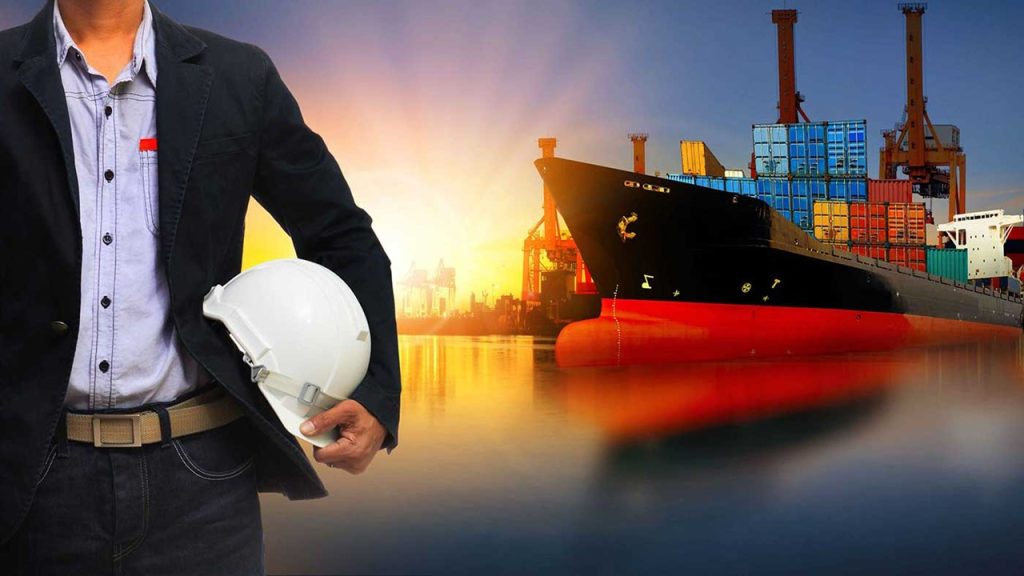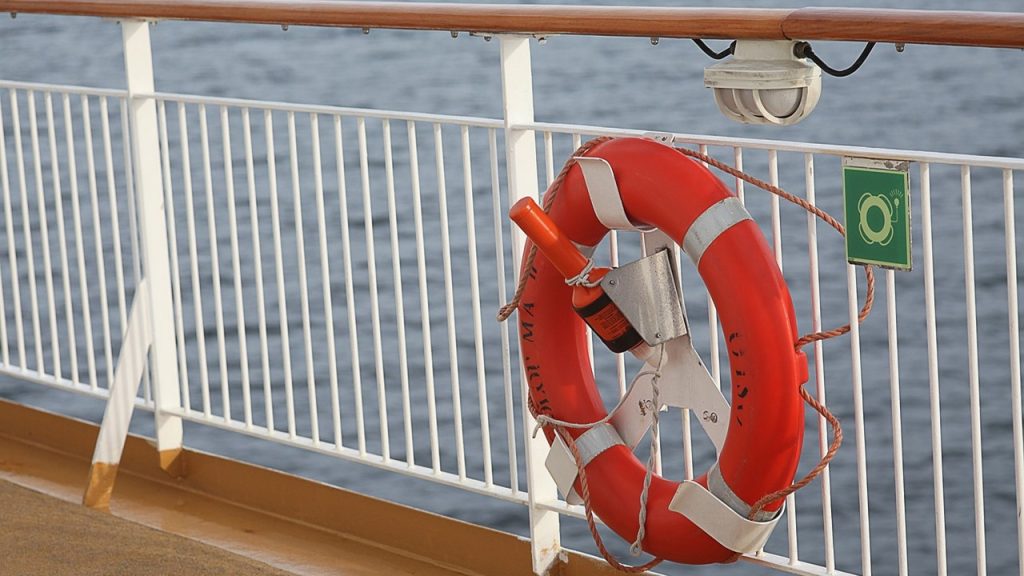Buckle up because we’re about to take you on a wild ride through the mind-boggling realm of SOLAS! This international convention isn’t just a set of boring guidelines – it’s a treasure trove of astonishing revelations that will make your jaw drop. Did you know that SOLAS has its own language? That’s right; they communicate using a secret code called Maritime English. But that’s just scratching the surface – prepare to be amazed by obscure regulations, futuristic technologies, and unbelievable rescue missions that will forever change how you perceive maritime safety. So fasten your seatbelt (or lifejacket) because this journey is going to be one heck of an eye-opener!
Click here to view our accreditation and safety standards.
- Email us: info@fullspeedchartering.com
- Mobile, Viber, WhatsApp: +63 939 3753224
- Facebook Messenger: Click here
- Click here to inquire
What is SOLAS and Why is It Important?
SOLAS stands for the International Convention for the Safety of Life at Sea, and it is considered one of the most important international treaties when it comes to maritime safety. Established in 1914, SOLAS has undergone several revisions over the years, addressing various aspects of ship safety and ensuring that vessels meet the minimum standards to protect human life at sea.
While many may view SOLAS as a bureaucratic obligation for ship operators, its significance cannot be overstated. The convention covers crucial areas such as construction standards, equipment requirements, fire protection measures, and even contingency plans in case of emergencies. By adhering to these regulations and guidelines set by SOLAS, we can reduce the likelihood of accidents or catastrophes at sea, safeguarding both crew members and passengers alike.
Moreover, SOLAS plays a vital role in fostering international cooperation among nations with regard to maritime safety. The convention facilitates harmonization between different countries’ rules and regulations so that ships from any nation can sail freely across international waters without compromising safety standards. This collaboration not only ensures consistent safety measures but also improves overall efficiency in disaster response efforts on a global scale.
SOLAS is much more than a set of rules; rather, it represents an ongoing commitment by nations worldwide to prioritize human life when it comes to maritime matters. By promoting safer ships and standardized protocols for emergency situations at sea, the International Convention for the Safety of Life at Sea contributes greatly to marine navigation security while fostering global cooperation among its signatories.
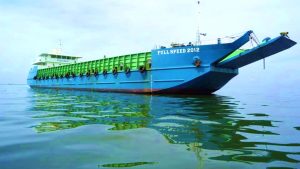
Here are the 11 surprising facts about SOLAS:
Fact 1: SOLAS Stands for Safety of Life at Sea
The International Convention for the Safety of Life at Sea is a crucial international treaty that sets minimum safety standards for ships. Established in 1914 following the sinking of the Titanic, SOLAS aims to ensure the safety of passengers and crew members by specifying regulations for various aspects of maritime operations. From fire safety measures to navigation and communication equipment requirements, this treaty covers a wide range of guidelines that govern almost every aspect related to ship safety.
One interesting perspective on SOLAS is its continuous evolution over time. Initially focusing on life-saving appliances such as lifeboats and lifebuoys, the treaty has expanded its scope throughout the years to include more comprehensive standards. This adaptation demonstrates both the commitment of international organizations like the International Maritime Organization (IMO) and member states that constantly strive to enhance maritime safety worldwide. The fact that the International Convention for the Safety of Life at Sea remains an essential document in today’s shipping industry highlights its continued relevance as new challenges emerge.
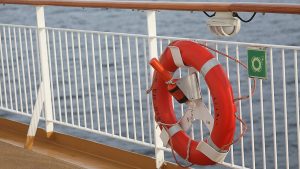
Fact 2: SOLAS is More than a Century Ago: It was First Adopted in 1914
It’s hard to believe that something as essential as the International Convention for the Safety of Life at Sea has been around for over a century. In fact, it was first adopted in 1914, making it one of the oldest maritime safety treaties in existence. This fact alone speaks volumes about the importance and enduring impact of SOLAS.
What’s even more fascinating is how SOLAS has evolved and adapted to keep pace with changing technology and industry practices. Over the years, numerous amendments have been made to address new challenges and emerging threats to maritime safety. From introducing requirements for life-saving appliances and fire protection measures to mandating global ship identification numbers, SOLAS continues to play a crucial role in ensuring the safety of lives at sea.
This longevity is a testament to the continual commitment of international governments and organizations towards protecting seafarers’ lives and preventing maritime accidents. And while it may have been born out of tragic events like the sinking of the RMS Titanic, SOLAS serves as a reminder that from tragedy can come significant advancements in safety standards – ones that benefit seafarers worldwide.
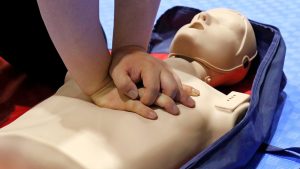
Fact 3: SOLAS has Undergone Several Revisions
The International Convention for the Safety of Life at Sea has undergone several revisions, making it a constantly evolving framework for maritime safety. First adopted in 1914 after the Titanic disaster, SOLAS has seen significant changes to keep up with advancing technology and address emerging challenges. For example, in 1948, an update was made to introduce new safety measures for passenger ships carrying more than 100 people. This revision mandated the installation of lifeboat capacity for everyone on board and added requirements for radio equipment.
Over the years, SOLAS underwent further amendments to account for developments in maritime practices and address new risks. In 1960, a significant change was introduced to require all passenger ships over a certain size to be constructed with fire-resistant materials. This amendment aimed at reducing the possibility of fires breaking out and spreading rapidly on board vessels. Another key revision came in 1974 when SOLAS incorporated guidelines for ship construction and maintenance to enhance structural integrity and mitigate hazards surrounding oil tankers.
The continuous revisions of SOLAS demonstrate its adaptability as international standards respond to changing needs within the maritime industry. These updates reflect advancements in technology, improve safety measures, and tackle new challenges that arise due to increased global trade and transportation demands. It is through these ongoing revisions that the International Convention for the Safety of Life at Sea continues to evolve as a robust framework ensuring safer journeys across oceans worldwide while protecting lives at sea.
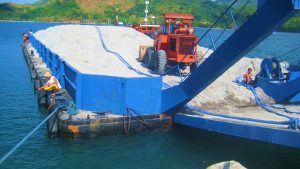
Fact 4: SOLAS Sets Standards For Ship Safety
One of the most significant contributions of SOLAS is its establishment and enforcement of comprehensive safety standards for ships. These rules cover a wide range of aspects, from design and construction to equipment and maintenance. the International Convention for the Safety of Life at Sea ensures that vessels are equipped with essential safety features such as life-saving appliances, fire prevention and fighting systems, and navigational aids.
Furthermore, SOLAS sets operational requirements that aim to minimize risks at sea. For example, it mandates regular training for crew members on emergency procedures, including abandon-ship drills and fire-fighting techniques. This ensures that seafarers are highly skilled in reacting swiftly and effectively during maritime emergencies.
The International Convention for the Safety of Life at Sea also takes into account the evolving nature of shipping by continuously updating its regulations to address new challenges. One recent development is the focus on cyber security in the maritime sector. With increasing reliance on digital technologies in ships’ operations, SOLAS has recognized the need to safeguard against potential cyber threats. By setting guidelines for managing cyber risks onboard vessels, SOLAS plays a crucial role in ensuring the safety of not only ships but also their cargo and personnel traveling across our oceans.
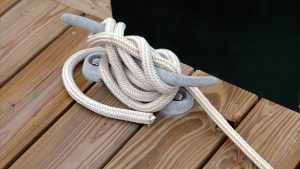
Fact 5: SOLAS Requires Life-Saving Equipment on Board
Fact 5: SOLAS requires life-saving equipment on board.
One of the most crucial aspects of SOLAS is the requirement for life-saving equipment on board all ships. This includes everything from lifejackets and liferafts to emergency lighting and rescue boats. The intention behind this regulation is to ensure that in the event of an emergency, crew members and passengers have access to adequate means of escaping a sinking or damaged vessel.
To meet these requirements, shipowners are obliged to provide enough lifejackets for all individuals on board, including additional provisions for children and infants. Additionally, there must be sufficient liferafts capable of accommodating everyone, with strict specifications regarding their construction and maintenance. These measures not only increase the chances of survival in emergencies but also serve as a vital reassurance for those who embark on oceanic voyages.
SOLAS mandates that every ship carries necessary life-saving equipment alongside detailed guidelines concerning its use and maintenance. By adhering to these regulations, maritime authorities strive to protect lives at sea by offering reliable means of escape during times of crisis.
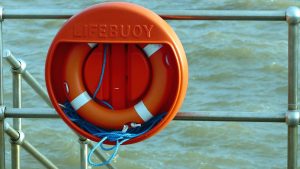
Fact 6: SOLAS Applies to all Ships Worldwide
One of the most intriguing aspects of the Safety of Life at Sea (SOLAS) convention is that it applies to all ships globally. Regardless of their size, type, or country of registry, every vessel must adhere to the regulations set forth by SOLAS. This uniformity ensures a comprehensive approach to maritime safety and helps protect lives at sea.
The wide-reaching nature of SOLAS reflects a collective effort by the international maritime community to prioritize safety and security in the world’s oceans. Whether it’s a massive cargo ship crossing vast oceans or a small fishing boat navigating coastal waters, all vessels fall under the purview of the International Convention for the Safety of Life at Sea. This inclusive approach recognizes that accidents and emergencies can occur anywhere and anytime at sea, emphasizing the importance of standardized safety measures across all types of ships.
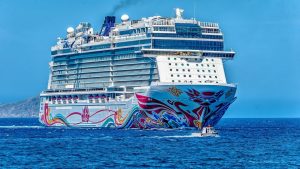
Fact 7: SOLAS was established after the Titanic disaster
Following the tragic sinking of the Titanic in 1912, which claimed the lives of more than 1,500 passengers and crew members, the need for international maritime safety regulations became strikingly apparent. In response to this disaster, the International Convention for the Safety of Life at Sea (SOLAS) was established in 1914.
SOLAS set forth a comprehensive set of rules to ensure the safety of all vessels navigating international waters. It addressed a wide range of issues, including ship design and construction standards, maritime communication protocols, life-saving equipment requirements, fire protection measures, and onboard emergency procedures. This landmark convention aimed to prevent future catastrophes by emphasizing vessel readiness, crew training, regular inspections, and strict enforcement of safety measures.
Over time, SOLAS has undergone several revisions to keep up with technological advancements and evolving global shipping standards. However, the core objective remains unchanged: to save lives at sea. The legacy of the International Convention for the Safety of Life at Sea continues to be felt today as it remains one of the most important international instruments for ensuring maritime safety. Although SOLAS was born out of tragedy, it is a testament to humanity’s commitment to learn from past mistakes and prioritize our collective well-being on waterways around the world.
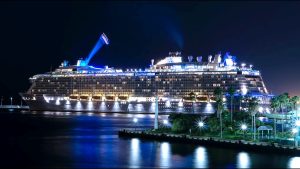
Fact 8: SOLAS Covers Various Aspects of Ship Safety
One of the most remarkable aspects of the Safety of Life at Sea convention is that it covers a wide range of ship safety measures. It is not just limited to one aspect but rather takes into account various factors that contribute to ensuring the well-being and security of everyone on board. From fire safety regulations to lifesaving appliances, SOLAS leaves no stone unturned in its mission to create safer seas.
For instance, SOLAS sets standards for navigation equipment and communication systems on board ships. This ensures that vessels are equipped with the necessary tools and technology to navigate safely through unpredictable waters. Additionally, SOLAS also addresses issues related to stability and hull integrity, requiring ships to be constructed in such a way that they are resilient against extreme weather conditions and other potential dangers.
SOLAS truly encompasses all crucial aspects of ship safety. By covering navigation equipment, communication systems, stability, and more, and this convention showcases a comprehensive approach to creating a secure maritime environment for all. With its diverse range of measures in place, the International Convention for the Safety of Life at Sea continues to make significant strides towards safeguarding lives at sea.
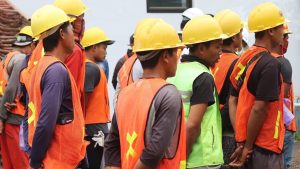
Fact 9: SOLAS Requires Regular Inspections and Surveys
One of the lesser-known provisions of the International Convention for the Safety of Life at Sea is that it requires regular inspections and surveys. This may seem like a mundane requirement, but it plays a vital role in ensuring the safety of ships and their passengers. By enforcing these inspections, SOLAS guarantees that vessels are maintained and operated in accordance with international safety standards.
Regular inspections help identify any deficiencies or issues that could compromise the ship’s safety. This includes checking for structural integrity, verifying proper functioning of essential equipment, such as fire detection systems and life-saving appliances, as well as assessing crew competency through drills and training exercises. Surveys are more comprehensive examinations conducted by classification societies to assess compliance with SOLAS requirements. These surveys are crucial for proving that ships have undergone the necessary checks to meet international regulations before being allowed to set sail.
By requiring regular inspections and surveys, SOLAS ensures that ships are continuously monitored and maintained to meet high safety standards. This not only protects passengers from potential risks but also helps prevent accidents at sea. These inspections serve as an important reminder that even after construction or major repairs, ships must undergo regular evaluations to maintain their seaworthiness throughout their operational life. So, the next time you step on board a ship, remember that the International Convention for the Safety of Life at Sea has your safety in mind every step of the way through its rigorous inspection requirements!
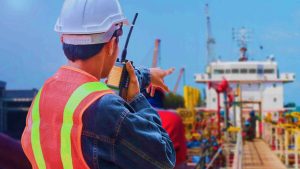
Fact 10: SOLAS Covers More Than Just Passenger Ships
When you think of the Safety of Life at Sea convention, you might picture massive cruise liners or bustling ferries filled with passengers. But did you know that SOLAS actually goes beyond regulating safety measures for just these types of vessels? That’s right! SOLAS covers all types of ships engaged in international voyages, regardless of their size or purpose.
This means that cargo ships, tankers, and even offshore drilling rigs are also subject to the regulations laid out in SOLAS. The aim is to ensure the safety of everyone at sea, not just passengers, by establishing uniform standards for equipment and procedures that mitigate risks and prevent accidents. So next time you see a mammoth container ship making its way across the ocean or a towering oil rig jutting out from the water’s surface, know that they, too, fall under the protective umbrella of the International Convention for the Safety of Life at Sea.
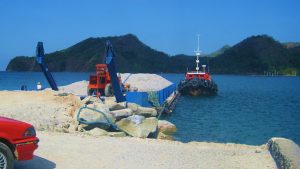
Fact 11: Only a Handful of Countries Didn’t Sign SOLAS
One surprising fact about the Safety of Life at Sea is that only a handful of countries did not sign this important international maritime treaty. With 167 member states, SOLAS is widely recognized as one of the most comprehensive agreements aimed at ensuring the safety and security of ships and their crews. However, it is intriguing to discover that a few countries have chosen not to join this global effort.
Although the exact number may vary slightly depending on the source, it is estimated that less than ten countries have abstained from signing SOLAS. While their reasons for doing so are not explicitly stated, it raises questions about their commitment to maintaining safety standards in the shipping industry. It also begs for further exploration into whether these nations have alternative measures in place to ensure maritime safety and what impact their refusal to sign SOLAS has on global efforts toward harmonizing regulations.
This fact sheds light on an often-overlooked aspect of the International Convention for the Safety of Life at Sea and forces us to think critically about the role each country plays in maintaining safety at sea. The overwhelming majority of nations recognizing and supporting the treaty serves as a testament to its significance and effectiveness, but we must not forget those few outliers who opted out. Ultimately, examining why these select countries chose not to be part of this crucial agreement can provide valuable insights into both their priorities and potential shortcomings within our collective efforts toward maritime safety and security.
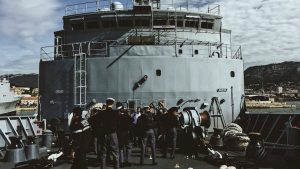
Takeaway: The lasting impact of SOLAS
In conclusion, the lasting impact of SOLAS cannot be overstated. This international treaty has not only saved countless lives but also revolutionized the way we approach maritime safety and regulation. By mandating crucial safety measures such as lifeboat capacity, navigation equipment requirements, and emergency training for crew members, the International Convention for the Safety of Life at Sea has significantly reduced the risk of accidents at sea.
However, its influence extends far beyond just improving safety standards. SOLAS has also played a pivotal role in shaping international cooperation and communication within the maritime industry. The treaty has provided a common framework for countries to work together toward ensuring the safety of ships and passengers, leading to increased trust and collaboration among nations. Additionally, SOLAS has set a precedent for other industries to follow suit by highlighting the importance of global regulations in safeguarding human lives.
Overall, the International Convention for the Safety of Life at Sea stands as a testament to our ability as humans to learn from tragic events and implement changes that can make a lasting difference. Its impact ripples through every ship that sails today and continues to shape policies that aim to prevent future maritime disasters. It serves as a reminder that through collective action and united efforts, we can create safer environments for all who navigate the world’s oceans.

